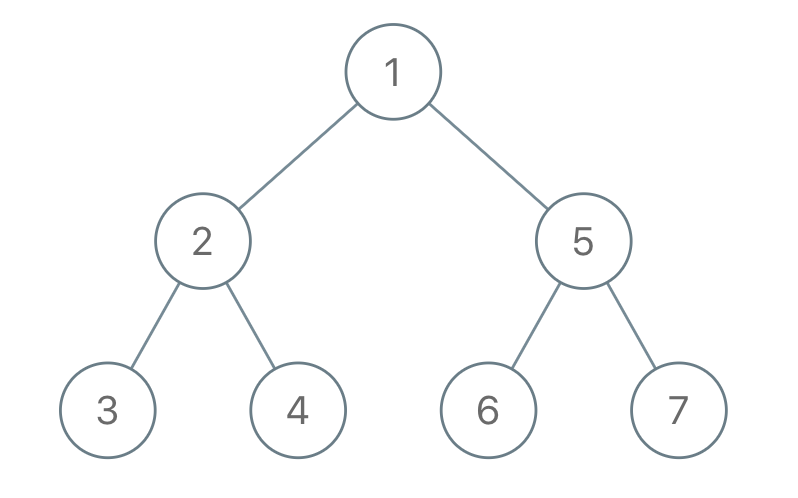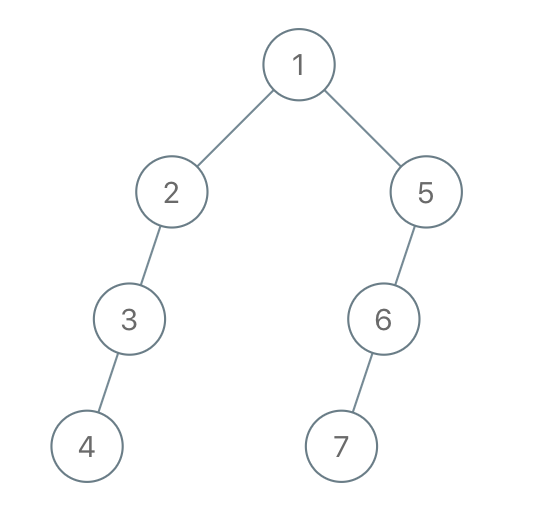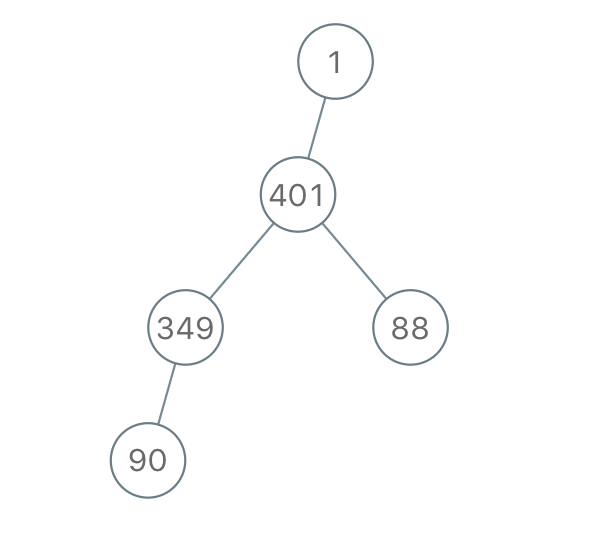LeetCode in Kotlin
1028. Recover a Tree From Preorder Traversal
Hard
We run a preorder depth-first search (DFS) on the root of a binary tree.
At each node in this traversal, we output D dashes (where D is the depth of this node), then we output the value of this node. If the depth of a node is D, the depth of its immediate child is D + 1. The depth of the root node is 0.
If a node has only one child, that child is guaranteed to be the left child.
Given the output traversal of this traversal, recover the tree and return its root.
Example 1:

Input: traversal = “1-2–3–4-5–6–7”
Output: [1,2,5,3,4,6,7]
Example 2:

Input: traversal = “1-2–3—4-5–6—7”
Output: [1,2,5,3,null,6,null,4,null,7]
Example 3:

Input: traversal = “1-401–349—90–88”
Output: [1,401,null,349,88,90]
Constraints:
- The number of nodes in the original tree is in the range
[1, 1000]. 1 <= Node.val <= 109
Solution
import com_github_leetcode.TreeNode
/*
* Example:
* var ti = TreeNode(5)
* var v = ti.`val`
* Definition for a binary tree node.
* class TreeNode(var `val`: Int) {
* var left: TreeNode? = null
* var right: TreeNode? = null
* }
*/
class Solution {
private var ptr = 0
fun recoverFromPreorder(traversal: String): TreeNode? {
return find(traversal, 0)
}
private fun find(traversal: String, level: Int): TreeNode? {
if (ptr == traversal.length) {
return null
}
var i = ptr
var count = 0
while (traversal[i] == '-') {
count++
i++
}
return if (count == level) {
val start = i
while (i < traversal.length && traversal[i] != '-') {
i++
}
val `val` = traversal.substring(start, i).toInt()
ptr = i
val root = TreeNode(`val`)
root.left = find(traversal, level + 1)
root.right = find(traversal, level + 1)
root
} else {
null
}
}
}

